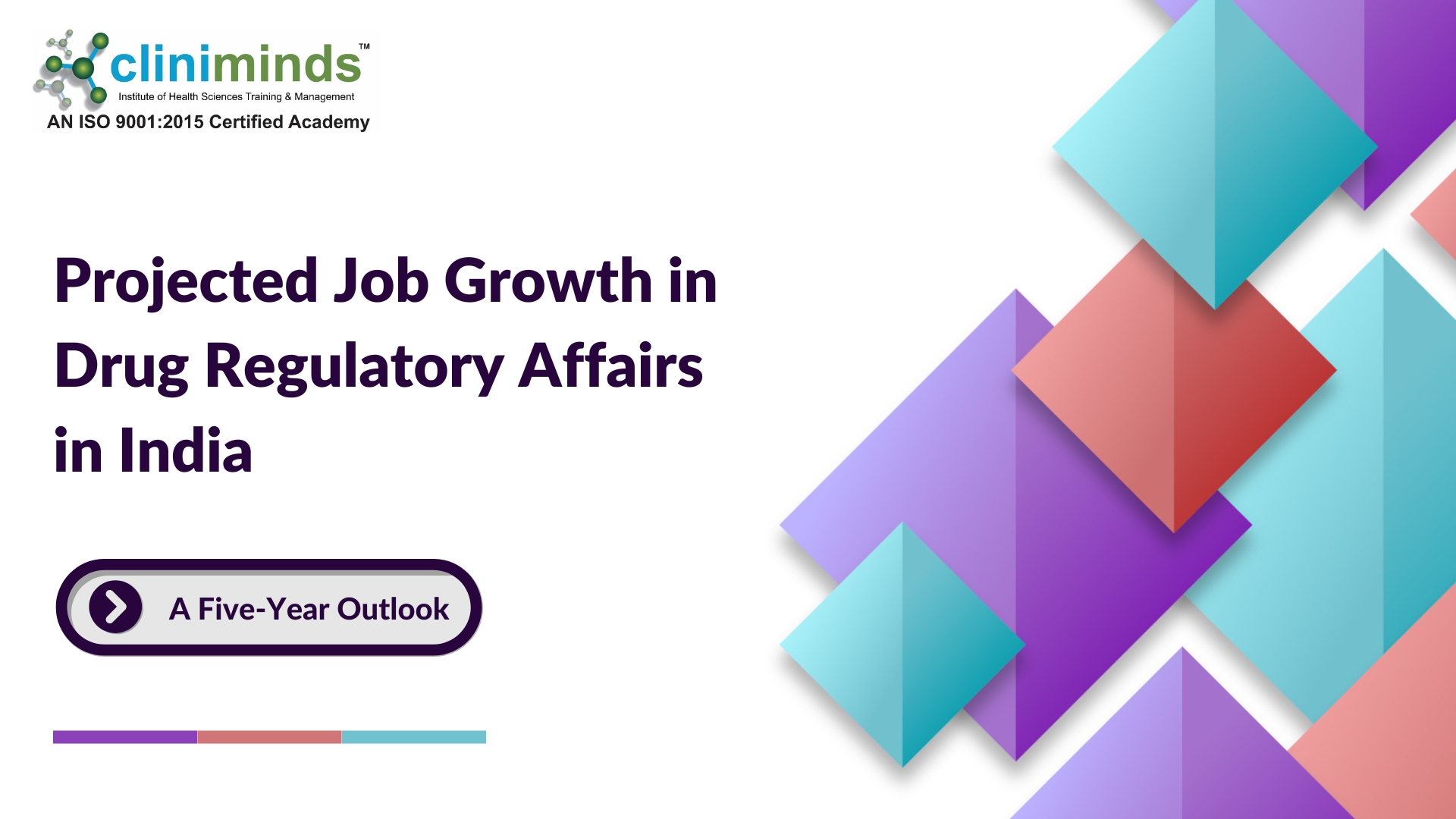Projected job growth in drug regulatory affairs in india: a five-year outlook

India’s pharmaceutical and healthcare sectors are experiencing rapid expansion, creating a growing demand for skilled professionals in drug regulatory affairs (DRA). With strategic government initiatives and increased foreign investment, the drug regulatory landscape is projected to generate a substantial number of job opportunities in the coming years.
Overview of Regulatory Affairs and Growth Drivers
Drug regulatory affairs is essential to ensure that pharmaceutical products meet stringent national and international standards. Regulatory affairs professionals oversee compliance, licensing, quality control, and the documentation required by regulatory agencies. In India, the demand for these professionals is set to increase due to several factors:
- Increasing Outsourcing from India of Regulatory Affairs Services by Global Companies: : India has become a favored destination for outsourcing regulatory affairs services by global pharmaceutical and medical device companies. Due to India’s skilled talent pool, cost advantages, and expertise in navigating complex regulatory environments, several international companies are increasingly outsourcing regulatory compliance, document submissions, and post-market surveillance activities to India. Key global players, such as Pfizer, Novartis, and Johnson & Johnson, have outsourced substantial parts of their regulatory operations to India. For example, Pfizer outsources the management of regulatory documentation for specific drug products, while Novartis partners with Indian firms for compliance management and product lifecycle maintenance across various markets. This trend not only reinforces India's position as a regulatory hub but also fuels demand for skilled regulatory professionals to handle outsourced functions for these multinational companies, creating thousands of new job opportunities in regulatory affairs.
- Production Linked Incentive (PLI) Scheme: The Indian government’s PLI scheme for the pharmaceutical sector, aimed at boosting domestic production of biopharmaceuticals, complex generics, and active pharmaceutical ingredients (APIs), will necessitate a larger regulatory workforce. PLI is expected to directly create new jobs in regulatory affairs to manage compliance and documentation standards for the targeted drug categories.
- Increasing Market Size and Export Demand: India’s pharmaceutical market, valued at around $62.9 billion in 2024, is expected to grow to nearly $83.9 billion by 2029, at an annual growth rate of approximately 5.9%. This expansion is supported by India's role as a major supplier of generic drugs and vaccines globally. Regulatory affairs will play a pivotal role in ensuring products meet export requirements, adding to the need for skilled professionals in this domain.
- Emphasis on Quality and Compliance: : Recent incidents and quality issues in the pharmaceutical sector have spurred India’s Central Drugs Standard Control Organization (CDSCO) to enhance quality checks and regulatory standards. The increased scrutiny and risk-based inspections are expected to require additional regulatory personnel to help companies adhere to stricter compliance measures.
- Digital Health and Innovation Initiatives: The government’s support for digital health, innovation, and Research & Development (R&D) initiatives underlines India’s commitment to a more robust pharmaceutical ecosystem. To keep up with innovation and global standards, the regulatory framework will need to evolve, creating more roles within DRA to handle digital compliance, innovation, and policy development.
Projected Job Creation in Drug Regulatory Affairs
Based on industry analysis and government initiatives, drug regulatory affairs in India is estimated to grow by approximately 10-15% annually over the next five years. This growth translates to a substantial increase in job opportunities, likely creating tens of thousands of new regulatory roles, especially as India moves to capture a larger share of the global pharmaceutical market. The combination of local demand and export expansion will require a well-trained workforce in regulatory affairs, especially as India continues to work towards self-reliance in API and biopharmaceutical manufacturing.
Based on the various industry reports and a very conservative estimate of 10% annual growth in drug regulatory affairs jobs, here’s a projected year-wise breakdown of entry level job creation in India’s pharmaceutical and medical device regulatory affairs over the next 10 years:
| Year | Estimated Number of Entry Level Fresher Jobs |
|---|---|
| 2024 | 2,000 |
| 2025 | 2,200 |
| 2026 | 2,420 |
| 2027 | 2,662 |
| 2028 | 2,928 |
| 2029 | 3,220 |
| 2030 | 3,542 |
| 2031 | 3,896 |
| 2032 | 4,285 |
| 2033 | 4,713 |
| Total over 10 Years | 31,866 |
This estimate assumes a 10% year-over-year growth rate, which reflects a conservative outlook on the expansion of regulatory affairs roles in response to market and regulatory changes in India’s pharmaceutical and medical device sectors
Skill Requirements and Future Outlook
The skill requirements for regulatory affairs professionals are also evolving, with an increased need for expertise in digital health policies, international regulatory compliance, and quality control standards. Professionals with knowledge in emerging areas such as digital health compliance, telemedicine regulation, and biosimilars are expected to be in high demand.
In summary, the future of drug regulatory affairs in India appears promising, driven by government incentives, sectoral growth, and an enhanced focus on quality. With steady job creation anticipated, this sector offers a wealth of opportunities for skilled professionals looking to advance India’s pharmaceutical industry on both national and global fronts.
References
For more information, please feel free to call at +91-9560102589 or mail us info@cliniminds.com Visit website –www.cliniminds.com



